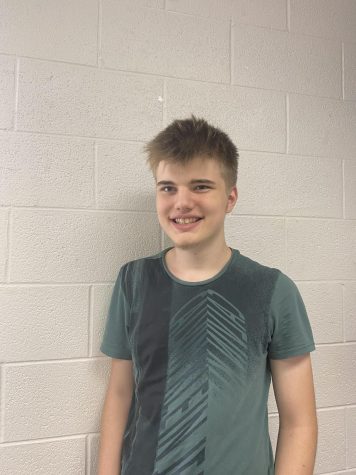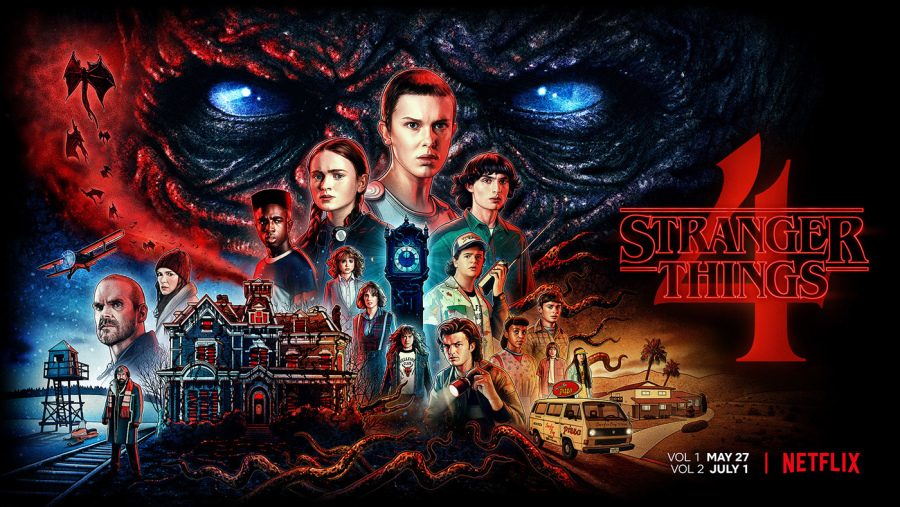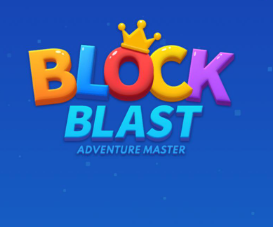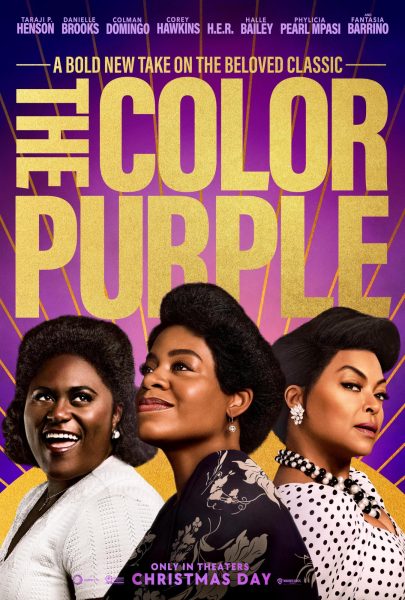VECNA: THE PERSONIFICATION OF SUICIDE
In 6th grade, me and my friends would play a game called infection, a mix of tag and hide and seek. Will was very good at the hiding part. When me and the other infected were looking for him, we would call out “Will! Will Byers!” at the top of our lungs. That was six years ago and Stranger Things has remained a significant part of my life ever since. If you’re my age and have been watching it from the beginning, that’s probably true for you too. I started watching it in elementary school and when the 5th and final season is released I’ll be in college. These characters have been with me longer than many of my closest friends, which is why season 4 hit me so hard, and why Vecna worked so well as this season’s antagonist.
Vecna represents two closely related fears. The first is the fear that I am powerless to protect the people I love from the demons they refuse to tell me about. And the second is that the people I love won’t be able to protect me from the demons I refuse to tell them about. In recent years, as teen suicide rates continue to rise, those fears have become more rational. Vecna is established in the first 3 episodes of the season as an unstoppable, insurmountable force. Once he has his sights on you, there is nothing you can do to escape your gruesome fate. Before their fate is sealed, Vecna torments his victims with hallucinations of the things they hate about themselves. He doesn’t do this because of any pleasure he derives from it, he does it because he hates his victims just as much as they hate themselves and he wants to convince them that this is justice. That it’s their only way out.
All of Vecna’s victims are either teenagers or young adults. This isn’t because of a limited victim pool. We see in episode 3 when Vecna is selecting a new target, he briefly considers choosing an adult woman and an adult man before picking the highschooler, Patrick. The only thing that matters to him when choosing his next victim is their past trauma and how much they blame themselves for it. This reflects the fact that, while the epidemic of suicide claims victims of all ages and demographics, teenagers are at significantly higher risk because we lack experience in dealing with many of the new adult emotions and situations that are forced upon us. And it’s for that reason that we make the perfect targets for Vecna’s sadistic, emotional manipulation.
What makes Vecna so difficult to combat is that it’s impossible to know who his next victim will be, and whoever it is probably won’t recognize the danger they’re in until it’s too late. And even if they did, they wouldn’t know how to save themselves. This is a situation many who suffer from suicidal thoughts and low self-worth find themselves in. As a teen it’s easy to dismiss your negative emotions as a byproduct of hormones doing strange things to your brain, or to ignore the feelings out right. Similarly, Vecna’s 1st, 2nd, and 4th targets do their best to ignore their hallucinations despite the intense fear and dread they feel during them. They also refrain from telling others about these hallucinations out of a fear that they’ll either be ignored or thought of as insane.
Unlike the others, Max knows exactly what is going to happen now that Vecna has chosen her, but this doesn’t make her anymore willing to open up to her friends. She’s convinced, just as I was while watching, that there is nothing her friends can do to help her. She doesn’t allow herself to hope, she bitterly accepts her end and convinces herself that her friends won’t miss her to make the inevitable act of brutal violence hurt less. Meanwhile, I was doing the exact same thing. The whole time I was watching the episode I imagined Max’s limbs snapping, her jaw being wrenched open, and her eyes bursting before falling limply to the ground to lessen the impact of seeing it happen on screen. I started to downplay what her character and the show as a whole meant to me. Even when they started playing Kate Bush and the portal home opened I didn’t allow myself to hope. It was only when Max reminded herself of what she wanted to live for, what was on the other side of that portal that it started to hit me. This show, this character who was about to suffer a fate worse than death, had been with me for six years. These memories she’s flashing back to are just as much my memories as hers. The first time I watched Max go shopping with Eleven or dance with Lucas at the Snowball, was an equally long time ago for me. And we were all roughly the same age when these memories were first formed. And at the same time as I remembered everything I love about this show and all the reasons I didn’t want to see Max die, she remembered all the things she had to live for.
This whole sequence perfectly demonstrates how well Vecna works, not just as an intimidating villain, but as a lesson in how we can overcome our own suicidal thoughts and feelings of self-loathing that he represents. The choice to have a song be the thing that opens the portal seems like an excuse to have some dramatic music score Max’s escape. But during times of personal turmoil a piece of art that can distract you from your thoughts, can save your life. Another powerful coping strategy is to focus on positive memories. Reminding yourself that you are capable of feeling happiness, that these negative emotions aren’t the only things you’re capable of experiencing, can give you the strength to push forward so that you can live to be happy again, just as it gave Max the strength to break free from Vecna’s grasp.
But the most significant thing you can do if you have difficulty valuing your life, is to confide in people who do. People whose lives will be made worse if you were to die. People who will fight to keep that from happening. People who love you. Most likely you already have people in your life who meet these qualifications, even if you don’t realize it. It’s easy to convince yourself you don’t deserve their love, because it goes against every belief you have about yourself. You tell yourself that if they really knew you, they would hate you. You dig up every twisted thought you’ve ever had, every horrible thing you ever did, every good thing you didn’t do to justify this belief. These things you dig up, they aren’t lies. They can be blown out of proportion but they all come from a place of truth. It’s the conclusions people draw about themselves from this truth, and the punishments they believe they deserve as a result, that’s the lie. And it’s that lie Vecna tells all his victims, because he knows that if he can get his victims to believe that lie, to hide from a world they think they aren’t worthy of existing in, they have no way to escape.
This is why it’s so important to have people who will challenge your worldview, who can show you that loving you is possible. All Max needed was a couple of these. Three close friends and shouting, begging for her to come back down to Earth, telling her the truth, that she deserved to be back down with them. She didn’t need to believe in that truth forever, only long enough to run back to reality.
The fact that this is the show that everyone is watching, means that millions of people are having their experiences with suicidal thoughts meaningfuly validated and not dismissed as something less than thay are. We are told too often that these thoughts we have about ourselves are all in our head. Likewise Vecna, at least as he appears to his victims, only exists in their minds, but that doesn’t make him any less dangerous.
In general, Stranger Things has always done an amazing job treating the experiences and emotions of kids and teens seriously without turning it into melodrama. And in taking place nearly 40 years in the past where these groups lived almost completely different lives, it’s able to expose the problems they have been dealing with for decades.
Vecna is only as scary as he is because the people he threatens are people we know and love. And we only love them as much as we do because we’ve grown up with them. In making me care so much for these fictional characters, Stranger Things helped me realize how much I care about my friends, and how scared I am that I’ll lose them to the real world threats that Vecna represents. I had a friend tell me years ago that they knew they were going to die before they turned 18. I had a friend who lost someone close to them to suicide. I’ve wanted to die. And watching season 4 of Stranger Things made me feel just a bit more seen. The emotions I feel when I watch Max escape from Vecna for the first time don’t just come from the actors on screen, they come from the images I conjure in my mind. Images of one of my friends floating 10 feet in the air, one of my siblings being forced to relive their worst memories, my favorite song playing as I run towards the sound of my loved ones calling my name. Some of us are more likely to be Vecna’s next target than others, either because of our trauma, age, mental illness, or a million other factors we have no say over, but we all have reasons to hate ourselves, for why we don’t deserve to live, which means we are all susceptible to his influence. And we are all capable of being saved by each other.

I’ve got a lot of ideas, too many ideas, so I’m always very active during brainstorming sessions, and when someone else is depending on me to bring...











